Polyunsaturated fatty acids (PUFA) for attention deficit hyperactivity disorder (ADHD) in children and adolescents
- PMID: 37058600
- PMCID: PMC10103546
- DOI: 10.1002/14651858.CD007986.pub3
Polyunsaturated fatty acids (PUFA) for attention deficit hyperactivity disorder (ADHD) in children and adolescents
Abstract
Background: Attention deficit hyperactivity disorder (ADHD) is a major problem in children and adolescents, characterised by age-inappropriate levels of inattention, hyperactivity, and impulsivity, and is associated with long-term social, academic, and mental health problems. The stimulant medications methylphenidate and amphetamine are the most frequently used treatments for ADHD, but these are not always effective and can be associated with side effects. Clinical and biochemical evidence suggests that deficiencies of polyunsaturated fatty acids (PUFA) could be related to ADHD. Research has shown that children and adolescents with ADHD have significantly lower plasma and blood concentrations of PUFA and, in particular, lower levels of omega-3 PUFA. These findings suggest that PUFA supplementation may reduce the attention and behaviour problems associated with ADHD. This review is an update of a previously published Cochrane Review. Overall, there was little evidence that PUFA supplementation improved symptoms of ADHD in children and adolescents.
Objectives: To compare the efficacy of PUFA to other forms of treatment or placebo in treating the symptoms of ADHD in children and adolescents.
Search methods: We searched 13 databases and two trials registers up to October 2021. We also checked the reference lists of relevant studies and reviews for additional references.
Selection criteria: We included randomised and quasi-randomised controlled trials that compared PUFA with placebo or PUFA plus alternative therapy (medication, behavioural therapy, or psychotherapy) with the same alternative therapy alone in children and adolescents (aged 18 years and under) diagnosed with ADHD.
Data collection and analysis: We used standard Cochrane methods. Our primary outcome was severity or improvement of ADHD symptoms. Our secondary outcomes were severity or incidence of behavioural problems; quality of life; severity or incidence of depressive symptoms; severity or incidence of anxiety symptoms; side effects; loss to follow-up; and cost. We used GRADE to assess the certainty of evidence for each outcome.
Main results: We included 37 trials with more than 2374 participants, of which 24 trials were new to this update. Five trials (seven reports) used a cross-over design, while the remaining 32 trials (52 reports) used a parallel design. Seven trials were conducted in Iran, four each in the USA and Israel, and two each in Australia, Canada, New Zealand, Sweden, and the UK. Single studies were conducted in Brazil, France, Germany, India, Italy, Japan, Mexico, the Netherlands, Singapore, Spain, Sri Lanka, and Taiwan. Of the 36 trials that compared a PUFA to placebo, 19 used an omega-3 PUFA, six used a combined omega-3/omega-6 supplement, and two used an omega-6 PUFA. The nine remaining trials were included in the comparison of PUFA to placebo, but also had the same co-intervention in the PUFA and placebo groups. Of these, four trials compared a combination of omega-3 PUFA plus methylphenidate to methylphenidate. One trial each compared omega-3 PUFA plus atomoxetine to atomoxetine; omega-3 PUFA plus physical training to physical training; and an omega-3 or omega-6 supplement plus methylphenidate to methylphenidate; and two trials compared omega-3 PUFA plus dietary supplement to dietary supplement. Supplements were given for a period of between two weeks and six months. Although we found low-certainty evidence that PUFA compared to placebo may improve ADHD symptoms in the medium term (risk ratio (RR) 1.95, 95% confidence interval (CI) 1.47 to 2.60; 3 studies, 191 participants), there was high-certainty evidence that PUFA had no effect on parent-rated total ADHD symptoms compared to placebo in the medium term (standardised mean difference (SMD) -0.08, 95% CI -0.24 to 0.07; 16 studies, 1166 participants). There was also high-certainty evidence that parent-rated inattention (medium-term: SMD -0.01, 95% CI -0.20 to 0.17; 12 studies, 960 participants) and hyperactivity/impulsivity (medium-term: SMD 0.09, 95% CI -0.04 to 0.23; 10 studies, 869 participants) scores were no different compared to placebo. There was moderate-certainty evidence that overall side effects likely did not differ between PUFA and placebo groups (RR 1.02, 95% CI 0.69 to 1.52; 8 studies, 591 participants). There was also moderate-certainty evidence that medium-term loss to follow-up was likely similar between groups (RR 1.03, 95% CI 0.77 to 1.37; 13 studies, 1121 participants).
Authors' conclusions: Although we found low-certainty evidence that children and adolescents receiving PUFA may be more likely to improve compared to those receiving placebo, there was high-certainty evidence that PUFA had no effect on total parent-rated ADHD symptoms. There was also high-certainty evidence that inattention and hyperactivity/impulsivity did not differ between PUFA and placebo groups. We found moderate-certainty evidence that overall side effects likely did not differ between PUFA and placebo groups. There was also moderate-certainty evidence that follow-up was similar between groups. It is important that future research addresses the current weaknesses in this area, which include small sample sizes, variability of selection criteria, variability of the type and dosage of supplementation, and short follow-up times.
Trial registration: ClinicalTrials.gov NCT01554462 NCT03542643 NCT00770627 NCT01796262 NCT00874536 NCT01807299 NCT01795040 NCT01777048 NCT01233856 NCT01778647 NCT02999503 NCT02114632 NCT02248948 NCT02348073 NCT02986672.
Copyright © 2023 The Cochrane Collaboration. Published by John Wiley & Sons, Ltd.
Conflict of interest statement
Donna Gillies is a former Editor of Cochrane Developmental, Psychosocial and Learning Problems. She was not involved in the editorial process for this review.
Matthew Leach: has declared that he has no conflicts of interest.
Guillermo Perez Algorta: has declared that he has no conflicts of interest.
Figures
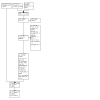
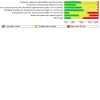
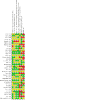
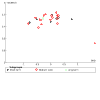
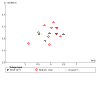
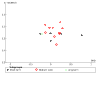
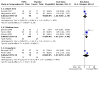
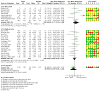
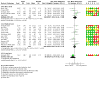
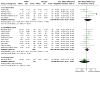
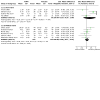
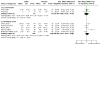
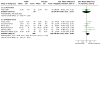
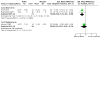
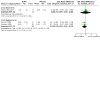
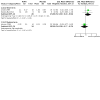
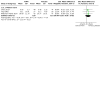
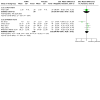
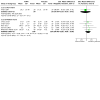
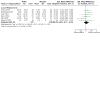
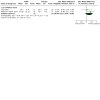
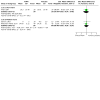
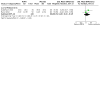
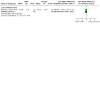


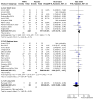
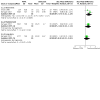
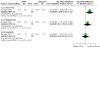
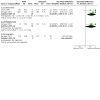
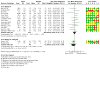
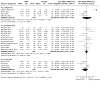
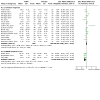
Update of
-
Polyunsaturated fatty acids (PUFA) for attention deficit hyperactivity disorder (ADHD) in children and adolescents.Cochrane Database Syst Rev. 2012 Jul 11;2012(7):CD007986. doi: 10.1002/14651858.CD007986.pub2. Cochrane Database Syst Rev. 2012. Update in: Cochrane Database Syst Rev. 2023 Apr 14;4:CD007986. doi: 10.1002/14651858.CD007986.pub3 PMID: 22786509 Free PMC article. Updated. Review.
Similar articles
-
Polyunsaturated fatty acids (PUFA) for attention deficit hyperactivity disorder (ADHD) in children and adolescents.Cochrane Database Syst Rev. 2012 Jul 11;2012(7):CD007986. doi: 10.1002/14651858.CD007986.pub2. Cochrane Database Syst Rev. 2012. Update in: Cochrane Database Syst Rev. 2023 Apr 14;4:CD007986. doi: 10.1002/14651858.CD007986.pub3 PMID: 22786509 Free PMC article. Updated. Review.
-
Methylphenidate for children and adolescents with attention deficit hyperactivity disorder (ADHD).Cochrane Database Syst Rev. 2023 Mar 27;3(3):CD009885. doi: 10.1002/14651858.CD009885.pub3. Cochrane Database Syst Rev. 2023. PMID: 36971690 Free PMC article. Review.
-
Methylphenidate for children and adolescents with autism spectrum disorder.Cochrane Database Syst Rev. 2017 Nov 21;11(11):CD011144. doi: 10.1002/14651858.CD011144.pub2. Cochrane Database Syst Rev. 2017. PMID: 29159857 Free PMC article. Review.
-
Stimulant and non-stimulant drug therapy for people with attention deficit hyperactivity disorder and epilepsy.Cochrane Database Syst Rev. 2022 Jul 13;7(7):CD013136. doi: 10.1002/14651858.CD013136.pub2. Cochrane Database Syst Rev. 2022. PMID: 35844168 Free PMC article. Review.
-
Immediate-release methylphenidate for attention deficit hyperactivity disorder (ADHD) in adults.Cochrane Database Syst Rev. 2021 Jan 18;1(1):CD013011. doi: 10.1002/14651858.CD013011.pub2. Cochrane Database Syst Rev. 2021. PMID: 33460048 Free PMC article.
Cited by
-
Uncovering the role of ferroptosis in Bietti crystalline dystrophy and potential therapeutic strategies.Cell Commun Signal. 2024 Jul 11;22(1):359. doi: 10.1186/s12964-024-01710-x. Cell Commun Signal. 2024. PMID: 38992691 Free PMC article.
-
Investigating the Impact of Nutrition and Oxidative Stress on Attention Deficit Hyperactivity Disorder.Nutrients. 2024 Sep 15;16(18):3113. doi: 10.3390/nu16183113. Nutrients. 2024. PMID: 39339712 Free PMC article. Review.
-
The Role of Dietary Patterns and Nutritional Supplements in the Management of Mental Disorders in Children and Adolescents: An Umbrella Review of Meta-Analyses: Le rôle des habitudes alimentaires et des suppléments nutritionnels dans la prise en charge des troubles mentaux chez les enfants et les adolescents : une méta-revue de méta-analyses.Can J Psychiatry. 2024 Aug;69(8):567-589. doi: 10.1177/07067437241248070. Epub 2024 Apr 30. Can J Psychiatry. 2024. PMID: 38689430
-
Neutrophil to lymphocyte ratio, platelet to lymphocyte ratio, and monocyte to lymphocyte ratio in ADHD: a systematic review and meta-analysis.Front Psychiatry. 2023 Nov 14;14:1258868. doi: 10.3389/fpsyt.2023.1258868. eCollection 2023. Front Psychiatry. 2023. PMID: 38034918 Free PMC article.
-
Optimal omegas - barriers and novel methods to narrow omega-3 gaps. A narrative review.Front Nutr. 2024 Feb 2;11:1325099. doi: 10.3389/fnut.2024.1325099. eCollection 2024. Front Nutr. 2024. PMID: 38371504 Free PMC article. Review.
References
References to studies included in this review
Aman 1987 {published data only}
Anand 2016 {published data only}
-
- Anand P, Sachdeva A. Effect of poly unsaturated fatty acids administration on children with attention deficit hyperactivity disorder: a randomized controlled trial. Journal of Clinical & Diagnostic Research 2016;10(9):OC01-5. [DOI: 10.7860/JCDR/2016/20423.8471] [PMCID: PMC5071983] [PMID: ] - DOI - PMC - PubMed
Arnold 1989 {published data only}
-
- Arnold LE, Kleykamp D, Votolato N, Gibson RA, Horrocks L. Potential link between dietary intake of fatty acids and behavior: pilot exploration of serum lipids in attention-deficit hyperactivity disorder. Journal of Child and Adolescent Psychopharmacology 1994;4(3):171-82. [DOI: 10.1089/cap.1994.4.171] - DOI
Assareh 2017 {published data only}IRCT138803122000N1
-
- Assareh M, Davari Ashtiani R, Khademi M, Jazayeri S, Rai A, Nikoo M. Efficacy of polyunsaturated fatty acids (PUFA) in the treatment of attention deficit hyperactivity disorder: a randomized, double-blind, placebo-controlled clinical trial. Journal of Attention Disorders 2017;21(1):78-85. [DOI: 10.1177/1087054712463962] [PMID: ] - DOI - PubMed
-
- IRCT138803122000N1. Poly unsaturated fatty acid as a combination treatment in children with attention deficit hyperactivity disorder [Omega-3 in the treatment of attention deficit hyperactivity disorder]. en.irct.ir/trial/1598?revision=1598 (first received 21 May 2011).
Barragán 2017 {published data only}
Behdani 2013 {published data only}
Bélanger 2009 {published data only}
-
- Bélanger SA, Vanasse M, Spahis S, Sylvestre MP, Lippé S, L'Heureux F, et al. Omega-3 fatty acid treatment of children with attention-deficit hyperactivity disorder: a randomized, double-blind, placebo-controlled study. Paediatrics and Child Health 2009;14(2):89-98. [DOI: 10.1093/pch/14.2.89] [PMCID: PMC2661342] [PMID: ] - DOI - PMC - PubMed
-
- Vanasse M, Ageranioti-Bélanger S, L'Heureux F, Ghadirian P, Levy E, Spahis S, et al. A randomized, controlled trial of omega-3 and phospholipids supplementation in children with attention-deficit-hyperactivity disorder. Developmental Medicine & Child Neurology 2006;48(Suppl 107):48. [DOI: 10.1111/j.1469-8749.2006.tb12600.x] - DOI
Bos 2015 {published data only}
-
- Bos D, Van Belle J, Weusten J, Hoeksma M, Wiseman S, Durston S. Effects of N-3 fatty acids (DHA and EPA) on cognitive control and associated brain activity in ADHD: a double-blind placebo controlled study. European Child & Adolescent Psychiatry 2010;19(Suppl 1):S69. [DOI: 10.1007/s00787-010-0117-5] - DOI
-
- Bos D, Van Belle J, Weusten J, Hoeksma M, Wiseman S, Durston S. Effects of N-3 fatty acids (DHA and EPA) on cognitive control and associated brain activity in ADHD: a double-blind placebo controlled study. In: European Child and Adolescent Psychiatry, Conference: Eunethydis 1st International ADHD Conference: From Data to Best Clinical Practice; 2010 May 26–28; Amsterdam. 2010.
-
- Bos DJ, Oranje B, Veerhoek ES, Van Diepen RM, Weusten JMh, Demmelmair H, et al. Reduced symptoms of inattention after dietary omega-3 fatty acid supplementation in boys with and without attention deficit/hyperactivity disorder. Neuropsychopharmacology 2015;40(10):2298–306. [DOI: 10.1038/npp.2015.73] [PMCID: PMC4538345] [PMID: ] - DOI - PMC - PubMed
Brue 2001 {published data only}
-
- Brue AW, Oakland TD, Evans RA. The use of a dietary supplement combination and an essential fatty acid as an alternative and complementary treatment for children with attention-deficit/hyperactivity disorder. Scientific Review of Alternative Medicine 2001;5(4):187-94. [WEB PAGE: tinyurl.com/y56pdtxq]
-
- Brue AW. The Use of a Dietary Supplement Combination and an Essential Fatty Acid as an Alternative and Complementary Treatment for Children with Attention Deficit Hyperactivity Disorder (ADHD) [PhD thesis]. Gainesville (FL): University of Florida, 1999.
Chang 2019 {published data only}
-
- Chang JP, Su KP, Mondelli V, Satyanarayanan SK, Yang HT, Chiang YJ, et al. High-dose eicosapentaenoic acid (EPA) improves attention and vigilance in children and adolescents with attention deficit hyperactivity disorder (ADHD) and low endogenous EPA levels. Translational Psychiatry 2019;9(1):303. [DOI: 10.1038/s41398-019-0633-0] [PMCID: PMC6864068] [PMID: ] - DOI - PMC - PubMed
-
- NCT03542643. Omega-3 polyunsaturated fatty acids in youth with ADHD [A double-blind randomised controlled trial of N-3 PUFAs in children with attention deficit hyperactivity disorder]. clinicaltrials.gov/ct2/show/NCT03542643 (first received 20 May 2018).
Cornu 2018 {published data only}
-
- Cornu C, Mercier C, Ginhoux T, Masson S, Mouchet J, Nony P, et al. A double-blind placebo-controlled randomised trial of omega-3 supplementation in children with moderate ADHD symptoms. European Child & Adolescent Psychiatry 2018;27(3):377‐84. [DOI: 10.1007/s00787-017-1058-z] [PMID: ] - DOI - PubMed
-
- NCT00770627. Clinical trial to evaluate the efficacy and the tolerance of an omega 3 fatty acids supplementation in ADHD children [A randomized, controlled, double blind placebo trial to evaluate the efficacy and the tolerance of an omega 3 fatty acids supplementation in ADHD children]. clinicaltrials.gov/ct2/show/record/NCT00770627 (first received 9 October 2008).
Crippa 2019 {published data only}
-
- Crippa A, Tesei A, Sangiorgio F, Salandi A, Trabattoni S, Grazioli S, et al. Behavioral and cognitive effects of docosahexaenoic acid in drug-naïve children with attention-deficit/hyperactivity disorder: a randomized, placebo-controlled clinical trial. European Child & Adolescent Psychiatry 2019;28(4):571-83. [DOI: 10.1007/s00787-018-1223-z] [PMID: ] - DOI - PubMed
-
- NCT01796262. The effects of DHA on attention deficit and hyperactivity disorder (DADA) [The effects of DHA (docosahexaenoic acid) on attention deficit and hyperactivity disorder]. clinicaltrials.gov/show/nct01796262 (first received 12 February 2013).
Dashti 2014 {published data only}
-
- Dashti N, Hekmat H, Soltani HR, Rahimdel A, Javaherchian M. Comparison of therapeutic effects of omega-3 and methylphenidate (ritalin(®)) in treating children with attention deficit hyperactivity disorder. Iranian Journal of Psychiatry and Behavioral Sciences 2014;8(4):7-11. [PMCID: PMC4364471] [PMID: ] - PMC - PubMed
Dubnov‐Raz 2014 {published data only}
-
- Dubnov-Raz G, Khoury Z, Wright I, Raz R, Berger I. The effect of alpha-linolenic acid supplementation on ADHD symptoms in children: a randomized controlled double-blind study. Frontiers in Human Neuroscience 2014;8:780. [DOI: 10.3389/fnhum.2014.00780] [PMCID: PMC4188038] [PMID: ] - DOI - PMC - PubMed
-
- NCT00874536. Omega-3 supplementation and attention-deficit-hyperactivity disorder (ADHD) [The effect of omega-3 fatty acid supplementation on behavior of children with ADHD]. clinicaltrials.gov/show/nct00874536 (first received 1 April 2009).
Gow 2012 {published data only}
-
- Gow R. An Investigation Into Long-Chain Polyunsaturated Essential Fatty Acids, Event Related Potential Assessments of Brain Function and Behavioural Measures in Children and Adolescents With and Without Attention Deficit Hyperactivity Disorder [PhD thesis]. London, UK: King's College London, University of London, 2012.
Gustafsson 2010 {published data only}
-
- EUCTR2004-003853-13-SE. Placebo controlled, randomised, double-blind, multicentre study of PlusEPA (a PUFA, polyunsaturated fatty acids, supplement) as treatment for ADHD (combined type) with co-morbidity in Swedish children ages 7-12. www.clinicaltrialsregister.eu/ctr-search/trial/2004-003853-13/SE (first received 16 November 2004).
Hariri 2012 {published data only}
-
- Hariri M, Djazayery A, Djalali M, Saedisomeolia A, Rahimi A, Abdolahian E. Effect of n-3 supplementation on hyperactivity, oxidative stress and inflammatory mediators in children with attention-deficit-hyperactivity disorder. Malaysian Journal of Nutrition 2012;18(3):329-52. [PMID: ] - PubMed
Hirayama 2004 {published data only}
-
- Hirayama S, Hamazaki T, Terasawa K. Effect of docosahexaenoic acid-containing food administration on symptoms of attention-deficit/hyperactivity disorder - a placebo-controlled double-blind study. European Journal of Clinical Nutrition 2004;58(3):467-73. [DOI: 10.1038/sj.ejcn.1601830] [PMID: ] - DOI - PubMed
Ivity 2015 {published data only}
-
- Ivity E. Supplementation with Docosahexaenoic Acid Ameliorates Paediatric AD/HD [PhD thesis]. Edmonton (AB): University of Alberta, 2015.
Johnson 2009 {published data only}
-
- Johnson M, Ostlund S, Fransson G, Kadesjö B, Gillberg C. Omega-3/omega-6 fatty acids for attention deficit hyperactivity disorder: a randomized placebo-controlled trial in children and adolescents. Journal of Attention Disorders 2009;12(5):394-401. [DOI: 10.1177/1087054708316261] [PMID: ] - DOI - PubMed
-
- NCT01219309. Omega-3/omega-6 fatty acids for attention-deficit/hyperactivity disorder (ADHD): a trial in children and adolescents. clinicaltrials.gov/show/NCT01219309. (first received 30 October 2010).
Kean 2017 {published data only}
-
- Kean JD, Sarris J, Scholey A, Silberstein R, Downey LA, Stough C. Reduced inattention and hyperactivity and improved cognition after marine oil extract (PCSO-524®) supplementation in children and adolescents with clinical and subclinical symptoms of attention-deficit hyperactivity disorder (ADHD): a randomised, double-blind, placebo-controlled trial. Psychopharmacology 2017;234(3):403-20. [DOI: 10.1007/s00213-016-4471-y] [PMCID: PMC5225177] [PMID: ] - DOI - PMC - PubMed
Lim‐Ashworth 2013 {published data only}
-
- Lim-Ashworth N, Ooi YP, Weng SJ, Lim CG, Fung DSS, Glenn A, et al. Preliminary findings on the effects of nutritional and social skills intervention among children with attention deficit hyperactivity disorder. Annals: the official journal of the Academy of Medicine, Singapore 2013;42(Suppl 9):S162. [OP-CR-65] [WEB PAGE: www.annals.edu.sg/pdf/42VolNo9Sep2013/SHBC_2013_041013.pdf]
Manor 2012 {published data only}
-
- Manor I, Magen A, Keidar D, Rosen S, Tasker H, Cohen T, et al. The effect of phosphatidylserine containing omega3 fatty-acids on attention-deficit hyperactivity disorder symptoms in children: a double-blind placebo-controlled trial, followed by an open-label extension. European Psychiatry 2012;27(5):335-42. [DOI: 10.1016/j.eurpsy.2011.05.004] [PMID: ] - DOI - PubMed
-
- NCT00418184. The efficacy and safety of phosphatidylserine-omega3 in children with attention-deficit/hyperactivity disorder [A single-center, randomized, double-blind, placebo-controlled study of the efficacy and safety of phosphatidylserine-omega3 in children with attention-deficit/hyperactivity disorder]. clinicaltrials.gov/show/NCT00418184 (first received 4 January 2007).
Matsudaira 2015 {published data only}EUCTR2005‐005330‐12‐GBISRCTN27741572
-
- EUCTR2005-005330-12-GB. Omega-3 fatty acids supplementation for adolescent boys with attention deficit hyperactivity disorder: a double-blind, randomized controlled trial - MAAFA. trialsearch.who.int/Trial2.aspx?TrialID=EUCTR2005-005330-12-GB (first received 10 April 2006).
-
- ISRCTN27741572. Omega-3 fatty acids supplementation for adolescent boys with attention deficit hyperactivity disorder: a double-blind, randomized controlled trial. tinyurl.com/jz99z7vd (first received 10 March 2006). [DOI: 10.1186/ISRCTN27741572] - DOI
-
- Matsudaira T, Gow RV, Kelly J, Murphy C, Potts L, Sumich A, et al. Biochemical and psychological effects of omega-3/6 supplements in male adolescents with attention-deficit/hyperactivity disorder: a randomized, placebo-controlled, clinical trial. Journal of Child & Adolescent Psychopharmacology 2015;25(10):775-82. [DOI: 10.1089/cap.2015.0052] [PMCID: PMC4691649] [PMID: ] - DOI - PMC - PubMed
-
- Matsudaira T. Omega-3 PUFA Fatty Acids and Attention-Deficit/Hyperactivity Disorder [PhD thesis]. London, UK: King's College London, University of London, 2011.
Milte 2012 {published data only}ACTRN12607000332426
-
- ACTRN12607000332426. Omega-3 fatty acids for ADHD symptoms and learning difficulties in children [Randomised controlled trial investigating effect of supplementation with omega-3 fatty acids EPA and DHA versus omega-6 fatty acid LA on ADHD symptoms and learning difficulties in 7-12 year old children]. www.anzctr.org.au/Trial/Registration/TrialReview.aspx?id=82104 (first received 19 June 2007).
-
- Milte CM, Parletta N, Buckley JD, Coates AM, Young RM, Howe PR. Eicosapentaenoic and docosahexaenoic acids, cognition, and behavior in children with attention-deficit/hyperactivity disorder: a randomized controlled trial. Nutrition 2012;28(6):670-7. [DOI: 10.1016/j.nut.2011.12.009] [PMID: ] - DOI - PubMed
Moghaddam 2017 {published data only}IRCT2015092724209N2
-
- IRCT2015092724209N2. Investigating the effectiveness of methylphenidate and multi chain polyunsaturated fatty acids in treatment of patients with attention deficit hyperactivity disorder (ADHD) in Zahedan City [Investigating the effectiveness of methylphenidate and multi chain polyunsaturated fatty acids in treatment of symptoms of attention deficit hyperactivity disorder (ADHD) among 6 to 12 children suffered from ADHD]. trialsearch.who.int/Trial2.aspx?TrialID=IRCT2015092724209N2 (first received 28 April 2016).
Mohammadzadeh 2019 {published data only}IRCT2016060128182N2
-
- IRCT2016060128182N2. Omega-3 supplement in attention deficit hyperactivity disorder [The effectiveness of omega-3 supplement as an adjunctive therapy in children with attention deficit hyperactivity disorder]. www.irct.ir/trial/22914 (first received 23 January 2017).
-
- Mohammadzadeh S, Baghi N, Yousefi F, Yousefzamani B. Effect of omega-3 plus methylphenidate as an alternative therapy to reduce attention deficit-hyperactivity disorder in children. Korean Journal of Pediatrics 2019;62(9):360-6. [DOI: 10.3345/kjp.2018.06982] [PMCID: PMC6753311] [PMID: ] - DOI - PMC - PubMed
NCT01807299 {published data only}
-
- NCT01807299. The effect of physical training and the omega 3 consumption on attention deficit hyperactivity disorder in children (AOE) [The effect of physical training and the omega 3 consumption on attention deficit]. clinicaltrials.gov/ct2/show/NCT01807299 (first received 7 March 2013).
Perera 2012 {published data only}SLCTR/2009/006
-
- Perera H, Jeewandara KC, Seneviratne S, Guruge C. Combined ω3 and ω6 supplementation in children with attention-deficit hyperactivity disorder (ADHD) refractory to methylphenidate treatment: a double-blind, placebo-controlled study. Journal of Child Neurology 2012;27(6):747‐53. [DOI: 10.1177/0883073811435243] [PMID: ] - DOI - PubMed
-
- SLCTR/2009/006. Effectiveness of omega-3 and omega-6 in childhood behaviour disorders [Effectiveness of omega-3 and omega-6 in children with neuro-developmental disorders: a double-blind placebo-controlled study]. slctr.lk/trials/slctr-2009-006 (first received 17 July 2009).
Raz 2009a {published data only}
-
- Raz R, Carasso RL, Yehuda S. The influence of short-chain essential fatty acids on children with attention-deficit/hyperactivity disorder: a double-blind placebo-controlled study. Journal of Child and Adolescent Psychopharmacology 2009;19(2):167-77. [DOI: 10.1089/cap.2008.070] [PMID: ] - DOI - PubMed
Rodriguez 2019 {published data only}
-
- Rodríguez C, García T, Areces D, Fernández E, García-Noriega M, Domingo JC. Supplementation with high-content docosahexaenoic acid triglyceride in attention-deficit hyperactivity disorder: a randomized double-blind placebo-controlled trial. Neuropsychiatric Disease and Treatment 2019;15:1193-209. [DOI: 10.2147/NDT.S206020] [PMID: ] [PMID: ] - DOI - PMC - PubMed
Salehi 2016 {published data only}
-
- Salehi B, Mohammadbeigi A, Sheykholeslam H, Moshiri E, Dorreh F. Omega-3 and zinc supplementation as complementary therapies in children with attention-deficit/hyperactivity disorder. Journal of Research in Pharmacy Practice 2016;5(1):22-6. [DOI: 10.4103/2279-042X.176561] [PMCID: PMC4776543] [PMID: ] - DOI - PMC - PubMed
Sinn 2007 {published data only}
-
- Sinn N, Bryan J, Wilson C. Cognitive effects of polyunsaturated fatty acids in children with attention deficit hyperactivity disorder symptoms: a randomised controlled trial. Prostaglandins Leukotrienes and Essential Fatty Acids 2008;78(4-5):311-26. [DOI: 10.1016/j.plefa.2008.04.004] [PMID: ] - DOI - PubMed
Stevens 2003 {published data only}
Vaisman 2008 {published data only}
-
- NCT00382616. Supplementation of phosphatidylserine (PS) and n-3 long chain fatty acids (EPA, DHA) in children with ADHD. clinicaltrials.gov/ct2/show/NCT00382616 (first received 29 September 2006).
-
- Vaisman N, Kaysar N, Zaruk-Adasha Y, Pelled D, Brichon G, Zwingelstein G, et al. Correlation between changes in blood fatty acid composition and visual sustained attention performance in children with inattention: effect of dietary n-3 fatty acids containing phospholipids. American Journal of Clinical Nutrition 2008;87(5):1170-80. [DOI: 10.1093/ajcn/87.5.1170] [PMID: ] - DOI - PubMed
Voigt 2001 {published data only}
-
- Voigt RG, Llorente AM, Jensen CL, Fraley JK, Berretta MC, Heird WC. A randomized, double-blind, placebo-controlled trial of docosahexaenoic acid supplementation in children with attention-deficit/hyperactivity disorder. Journal of Pediatrics 2001;139(2):189-96. [DOI: 10.1067/mpd.2001.116050] [PMID: ] - DOI - PubMed
Widenhorn‐Müller 2014 {published data only}
-
- Widenhorn-Müller K, Schwanda S, Scholz E, Spitzer M, Bode H. Effect of supplementation with long-chain ω-3 polyunsaturated fatty acids on behavior and cognition in children with attention deficit/hyperactivity disorder (ADHD): a randomized placebo-controlled intervention trial. Prostaglandins Leukotrienes and Essential Fatty Acids 2014;91(1-2):49-60. [DOI: 10.1016/j.plefa.2014.04.004] [PMID: ] - DOI - PubMed
References to studies excluded from this review
Anonymous 2009 {published data only}
-
- Omega-3/omega-6 fatty acids and ADHD. Brown University Child & Adolescent Psychopharmacology Update 2009;11(4):4-5.
Doebel 2005 {published data only}
-
- Doebel JK, Keller G, Zierau M-T. Dietary therapy for children with ADHD. Deutsche Apotheker Zeitung 2005;145(24):54-7.
Döpfner 2021 {published data only}
-
- NCT01795040. Efficacy of omega-3/omega-6 fatty acids in pre-school children at risk for ADHD [Efficacy of a supplementary balanced diet with omega-3/omega-6 fatty acids among 3-6 year olds with symptoms of ADHD]. clinicaltrials.gov/ct2/show/NCT01795040 (first received 16 February 2013).
Greeff 2011 {published data only}
-
- Greeff J. Effects of Iron and Omega–3 Fatty Acid Supplementation on Physical Activity of Iron Deficient Primary School Children Residing in KwaZulu–Natal (Master's thesis). Potchefstroom, South Africa: North-West University, 2011. [WEB PAGE: www.semanticscholar.org/paper/Effects-of-iron-and-omega%E2%80%933-fatty-...]
Harding 2003 {published data only}
-
- Harding KL, Judah RD, Gant C. Outcome-based comparison of ritalin versus food-supplement treated children with AD/HD. Alternative Medicine Review 2003;8(3):319-30. [PMID: ] - PubMed
Johnson 2017 {published data only}
-
- Johnson M, Fransson G, Östlund S, Areskoug B, Gillberg C. Omega 3/6 fatty acids for reading in children: a randomized, double-blind, placebo-controlled trial in 9-year-old mainstream schoolchildren in Sweden. Journal of Child Psychology and Psychiatry 2017;58(1):83-93. [DOI: 10.1111/jcpp.12614] [PMID: ] - DOI - PubMed
Joshi 2006 {published data only}
-
- Joshi K, Lad S, Kale M, Patwardhan B, Mahadik SP, Patni B, et al. Supplementation with flax oil and vitamin C improves the outcome of attention deficit hyperactivity disorder (ADHD). Prostaglandins, Leukotrienes, and Essential Fatty Acids 2006;74(1):17-21. [DOI: 10.1016/j.plefa.2005.10.001] [PMID: ] - DOI - PubMed
Meguid 2016 {published data only}
-
- Effat S, Mohamed N, Hussein H, Azzam H, Gouda A, Hassan H. ADHD symptoms: relation to omega 3 serum levels before and after supplementation. European Psychiatry 2013;28(Suppl 1):1. [ABSTRACT NUMBER: 670] [DOI: 10.1016/S0924-9338(13)75914-5] - DOI
-
- Meguid N, Effat S, Hussien H, Azzam H, Gouda AS, Anwar M, et al. Role of plasma fatty acids in Egyptian children with attention deficit hyperactivity disorder. International Journal of Pharmaceutical and Clinical Research 2016;8(7):671-5. [WEB PAGE: impactfactor.org/PDF/IJPCR/8/IJPCR,Vol8,Issue7,Article6.pdf]
NCT01777048 {published data only}
-
- NCT01777048. Omega-3 fatty acids supplementation in ADHD [Augmenting the effects of methylphenidate: a randomized, placebo-controlled trial of omega-3 fatty acids supplementation in children with attention deficit hyperactivity disorder]. clinicaltrials.gov/ct2/show/NCT01777048 (first received 16 January 2013).
NCT01778647 {published data only}
-
- NCT01778647. Omega-3 fatty acids as an adjunctive therapy for stimulants in children with ADHD. clinicaltrials.gov/ct2/show/NCT01778647 (first received 30 September 2010).
Richardson 2002 {published data only}
-
- Richardson AJ, Puri BK. A randomized double-blind, placebo-controlled study of the effects of supplementation with highly unsaturated fatty acids on ADHD-related symptoms in children with specific learning difficulties. Progress in Neuro-Psychopharmacology & Biological Psychiatry 2002;26(2):233-9. [DOI: 10.1016/s0278-5846(01)00254-8] [PMID: ] - DOI - PubMed
San Mauro Martin 2019 {published data only}
-
- NCT02999503. Attention deficit hyperactivity disorder: nutrition and environment [Nutritional and environmental conditions in attention deficit hyperactivity disorder]. clinicaltrials.gov/ct2/show/study/NCT02999503 (first received 1 December 2016).
-
- San Mauro Martin I, Sanz Rojo S, González Cosano L, Conty de la Campa R, Garicano Vilar E, Blumenfeld Olivares JA. Impulsiveness in children with attention-deficit/hyperactivity disorder after an 8-week intervention with the Mediterranean diet and/or omega-3 fatty acids: a randomised clinical trial. Neurologia 2019 Dec 26 [Epub ahead of print]. [DOI: 10.1016/j.nrl.2019.09.007] [PMID: ] - DOI - PubMed
Tan 2014 {published data only}
-
- Tan X, Lee XY, Lim CG, Fung DSS. Effectiveness of omega-3 fatty acids supplementation on sleep in children and adolescents with attention deficit hyperactivity disorder. Annals: the official journal of the Academy of Medicine, Singapore 2014;43(Suppl 9):S340. [ABSTRACT #: PP-CR-44] [WEB PAGE: www.annals.edu.sg/pdf/43VolNo9Sep2014/SHBC2014_Final.pdf]
Wilens 2017 {published data only}
-
- Wilens TE, Carrellas NW, Zulauf C, Yule AM, Uchida M, Spencer A, et al. Pilot data supporting omega-3 fatty acids supplementation in medicated children with attention-deficit/hyperactivity disorder and deficits in emotional self-regulation. Journal of Child and Adolescent Psychopharmacology 2017;27(8):755-6. [DOI: 10.1089/cap.2017.0080] [PMID: ] - DOI - PMC - PubMed
References to studies awaiting assessment
Carucci 2017 {published data only}
-
- Carucci S, Romaniello R, Balia C, Demuru G, Curatolo P, Mereu A, et al. Efficacy study of an omega-3/6 combination for mild- to moderate-inattentive ADHD: a randomized, double-blind, placebo-controlled trial in Italian children. Journal of the American Academy of Child & Adolescent Psychiatry 2019;58(Suppl 10):S285-6. [ABSTRACT NUMBER: 6.45] [DOI: 10.1016/j.jaac.2019.08.437] - DOI
-
- Carucci S, Romaniello R, Masi G, Curatolo P, Gagliano A, Zuddas A. A randomized, double blind, placebo-controlled, efficacy study of omega 3/6 in children with mild to moderate inattentive ADHD-preliminary results. European Neuropsychopharmacology 2017;27(Suppl 4):S1109-10. [ABSTRACT NUMBER: P.7.d.007] [DOI: 10.1016/S0924-977X(17)31924-7] - DOI
-
- Romaniello R, Carucci S, Sanna E, Balia C, Zuddas A. Efficacy of an omega-3/6 combination on specific learning abilities in children with mild to moderate inattentive ADHD - preliminary results. European Neuropsychopharmacology 2018;28(Suppl 1):79-80. [ABSTRACT NUMBER: P.3.023] [DOI: 10.1016/j.euroneuro.2017.12.113] - DOI
-
- Sanna E, Romaniello R, Balia C, Carucci S, Zuddas A. Plasma poly-unsatured fatty acids profile in children with inattentive ADHD - preliminary results of an efficacy Italian study with omega 3/6. European Neuropsychopharmacology 2019;29(Suppl 1):S548‐9. [ABSTRACT NUMBER: P.798] [DOI: 10.1016/j.euroneuro.2018.11.809] - DOI
IRCT201104166201N1 {published data only}IRCT201104166201N1
-
- IRCT201104166201N1. Effect of zinc and omega-3 supplements as adjuvant therapy in children with attention-deficit hyperactivity disorder [Effect of zinc and omega-3 supplements in children with attention-deficit hyperactivity disorder]. en.irct.ir/trial/6635 (first received 13 May 2011).
IRCT201304035393N3 {published data only}IRCT201304035393N3
-
- IRCT201304035393N3. Omega-3 effects on patient with attention deficit hyperactivity disorder [Comparison of therapeutic effects of omega-3 and methylphenidate (ritalin) in treating patients with attention deficit hyperactivity disorder]. en.irct.ir/trial/5801?revision=5801 (first received 3 July 2013).
IRCT2016050918927N2 {published data only}IRCT2016050918927N2
-
- IRCT2016050918927N2. Effect of omega-3 on treatment of hyperactive children [Effect of omega-3 supplements as complementary treatment with methylphenidate in children with attention-deficit/hyperactivity disorder]. en.irct.ir/trial/17040 (first received 6 July 2016).
NCT00770627 {published data only}
-
- NCT00770627. Clinical trial to evaluate the efficacy and the tolerance of an omega 3 fatty acids supplementation in ADHD children [A randomized, controlled, double blind placebo trial to evaluate the efficacy and the tolerance of an omega 3 fatty acids supplementation in ADHD children]. clinicaltrials.gov/ct2/show/NCT00770627 (first received 9 October 2008).
NCT02114632 {published data only}
-
- NCT02114632. Supplementation of polyunsaturated fatty acids in children with attention deficit/hyperactivity disorder (ADHD) [A double blind, placebo controlled trial of effectiveness of omega-3 and omega-6 polyunsaturated fatty acids in treatment of children with attention deficit/hyperactivity disorder]. clinicaltrials.gov/ct2/show/results/NCT02114632 (first received 23 March 2014).
NCT02248948 {published data only}
-
- NCT02248948. Superiority of omega-3 versus placebo on the improvement of ADHD in children (ECOMEGA) [Multicenter randomized controlled trial for the evaluation of superiority of a supplement with omega-3 fatty acids versus placebo for the improvement of attention deficit and hyperactivity disorder (ADHD) in children]. clinicaltrials.gov/ct2/show/NCT02248948 (first received 22 September 2014).
NCT02348073 {published data only}
-
- NCT02348073. Efficacy of phosphatidylserine enriched with n-3 PUFA supplementation on ADHD in children with epilepsy (AGPIn3) [Efficacy of phosphatidylserine enriched with polyunsaturated n-3 fatty acid supplementation on attention deficit disorders in children with epilepsy. A randomized double-blind placebo-controlled trial]. clinicaltrials.gov/ct2/show/NCT02348073 (first received 22 January 2015).
NCT02986672 {published data only}
-
- NCT02986672. Intervention with omega-3 in children with attention deficit hyperactivity disorder (ADHD) [ADHD and nutrition: the influence of omega-3 on ADHD related symptoms]. clinicaltrials.gov/ct2/show/NCT02986672 (first received 8 January 2016).
NCT03542643 {published data only}
-
- NCT03542643. Omega-3 polyunsaturated fatty acids in youth with ADHD [A double-blind randomised controlled trial of N-3 PUFAs in children with attention deficit hyperactivity disorder]. clinicaltrials.gov/ct2/show/NCT03542643 (first received 20 May 2018).
References to ongoing studies
CTRI/2020/05/025267 {published data only}
-
- CTRI/2020/05/025267. Effect of omega-3 fatty acids in addition to methylphenidate in ADHD. trialsearch.who.int/?TrialID=CTRI/2020/05/025267 (first received 20 May 2020).
Additional references
Achenbach 1983
-
- Achenbach TM, Edelbrock CS. Manual for the Child Behavior Checklist and Revised Child Behavior Profile. Burlington (VT): University of Vermont, Department of Psychiatry, 1983.
Agostoni 2008
Agostoni 2017
-
- Agostoni C, Nobile M, Ciappolino V, Delvecchio G, Tesei A, Turolo S, et al. The role of omega-3 fatty acids in developmental psychopathology: a systematic review on early psychosis, autism, and ADHD. International Journal of Molecular Sciences 2017;18(12):2608. [DOI: 10.3390/ijms18122608] [PMCID: PMC5751211] [PMID: ] - DOI - PMC - PubMed
Altman 1996
APA 1994
-
- American Psychiatric Association. Diagnostic and Statistical Manual of Mental Disorders. 4th edition. Washington, DC: American Psychiatric Association, 1994.
APA 2000
-
- American Psychiatric Association. Diagnostic and Statistical Manual of Mental Disorders - Text Revision. 4th edition. Washington, DC: American Psychiatric Association, 2000.
APA 2013
-
- American Psychiatric Association. Diagnostic and Statistical Manual of Mental Disorders. 5th edition. Arlington (VA): American Psychiatric Association, 2013.
Arnold 2020
Assisi 2006
-
- Assisi A, Banzi R, Buonocore C, Capasso F, Di Muzio V, Michelacci F, et al. Fish oil and mental health: the role of n‐3 long‐chain polyunsaturated fatty acids in cognitive development and neurological disorders. International Clinical Psychopharmacology 2006;21(6):319-36. [DOI: 10.1097/01.yic.0000224790.98534.11] [PMID: ] - DOI - PubMed
Banaschewski 2004
Beau‐Lejdstrom 2016
Biederman 2005
Bjornstad 2005
Bloch 2011
-
- Bloch MH, Qawasmi A. Omega-3 fatty acid supplementation for the treatment of children with attention-deficit/hyperactivity disorder symptomatology: systematic review and meta-analysis. Journal of the American Academy of Child & Adolescent Psychiatry 2011;50(10):991-1000. [DOI: 10.1016/j.jaac.2011.06.008] [PMCID: PMC3625948] [PMID: ] - DOI - PMC - PubMed
Bonvicini 2016
-
- Bonvicini C, Faraone SV, Scassellati C. Attention-deficit hyperactivity disorder in adults: a systematic review and meta-analysis of genetic, pharmacogenetic and biochemical studies. Molecular Psychiatry 2016;21(7):872-84. Erratum in: Molecular Psychiatry. 2016 Nov;21(11):1643. DOI: 10.1038/mp.2016.128. [DOI: 10.1038/mp.2016.74] [PMCID: PMC5414093] [PMID: ] - DOI - PMC - PubMed
Borsonelo 2008
Burgess 2000
Calderón‐Moore 2012
-
- Calderón-Moore A, Pizarro-Castellanos M, Rizzoli-Córdoba A. Systematic review of the efficacy and safety of omega 3 and omega 6 fatty acid supplementation in developmental neurological disorders. Boletín Médico del Hospital Infantil de México 2012;69(4):265-70.
Carpenter Rich 2009
Chang 2018
-
- Chang JP, Su KP, Mondelli V, Pariante CM. Omega-3 polyunsaturated fatty acids in youths with attention deficit hyperactivity disorder: a systematic review and meta-analysis of clinical trials and biological studies. Neuropsychopharmacology 2018;43(3):534-45. [DOI: 10.1038/npp.2017.160] [PMID: ] - DOI - PMC - PubMed
Chen 2004
Chung 2019
-
- Chung W, Jiang SF, Paksarian D, Nikolaidis A, Castellanos FX, Merikangas KR, et al. Trends in the prevalence and incidence of attention-deficit/hyperactivity disorder among adults and children of different racial and ethnic groups. JAMA 2019;2(11):e1914344. [DOI: 10.1001/jamanetworkopen.2019.14344] [PMCID: PMC6826640] [PMID: ] - DOI - PMC - PubMed
Conners 1998
Cooper 2015
Cueli 2020
Daley 2004
Davis 2015
Deeks 2022
-
- Deeks JJ, Higgins JP, Altman DG, editor(s). Chapter 10: Analysing data and undertaking meta-analyses. In: Higgins JP, Thomas J, Chandler J, Cumpston M, Li T, Page MJ, Welch VA, editor(s). Cochrane Handbook for Systematic Reviews of Interventions Version 6.3 (updated February 2022). Cochrane, 2022. Available from www.training.cochrane.org/handbook.
Derbyshire 2017
Eaton 2022
-
- Eaton C, Yong K, Walter V, Mbizvo GK, Rhodes S, Chin RF. Stimulant and non-stimulant drug therapy for people with attention deficit hyperactivity disorder and epilepsy. Cochrane Database of Systematic Reviews 2022, Issue 7. Art. No: CD013136. [DOI: 10.1002/14651858.CD013136.pub2] [PMCID: PMC9289704 (available on 13 July 2023)] [PMID: ] - DOI - PMC - PubMed
Faraone 2000
Froehlich 2011
Glanville 2019
Golder 2008
Goode 2018
GRADEpro GDT [Computer program]
-
- GRADEpro GDT. Hamilton (ON): McMaster University (developed by Evidence Prime), accessed prior to 6 April 2023. Available at gradepro.org.
Haag 2003
Hales 2018
Higgins 2011
-
- Higgins JPT, Green S, editor(s). Cochrane Handbook for Systematic Reviews of Interventions Version 5.1.0 (updated March 2011). The Cochrane Collaboration, 2011. Available from training.cochrane.org/handbook/archive/v5.1/.
Higgins 2022
-
- Higgins JP, Eldridge S, Li T, editor(s). Chapter 23: Including variants on randomized trials. In: Higgins JP, Thomas J, Chandler J, Cumpston M, Li T, Page MJ, Welch VA, editor(s). Cochrane Handbook for Systematic Reviews of Interventions Version 6.3 (updated February 2022). Cochrane, 2022. Available from www.training.cochrane.org/handbook.
Houck 2011
Innis 2000
Jasani 2017
Katzman 2017
Kemper 2018
-
- Kemper AR, Maslow GR, Hill S, Namdari B, La Pointe NM, Goode AP, et al. Attention Deficit Hyperactivity Disorder: Diagnosis and Treatment in Children and Adolescents. Comparative Effectiveness Reviews, No 203 (Report No.: 18-EHC005-EF). Rockville (MD): Agency for Healthcare Research and Quality, 2018. [BOOKSHELF ID: NBK487761] [PMID: ] - PubMed
Kovacs 1992
-
- Kovacs M. CDI: Children's Depression Inventory. A Measure of Depressive Symptoms in Young Persons. www.pearsonclinical.co.uk/Psychology/generic/ChildrensDepressionInventor... (accessed prior to 20 January 2023).
Krause 2003
Krisanaprakornkit 2010
Lange 2017
Langley 2005
-
- Langley K, Rice F, Van den Bree MB, Thapar A. Maternal smoking during pregnancy as an environmental risk factor for attention deficit hyperactivity disorder behaviour. A review. Minerva Pediatrica 2005;57(6):359-71. [PMID: ] - PubMed
Lexchin 2003
Li 2006
Linnet 2003
-
- Linnet KM, Dalsgaard S, Obel C, Wisborg K, Henriksen TB, Rodriguez A, et al. Maternal lifestyle factors in pregnancy risk of attention deficit hyperactivity disorder and associated behaviors: review of the current evidence. American Journal of Psychiatry 2003;160(6):1028-40. [DOI: 10.1176/appi.ajp.160.6.1028] [PMID: ] - DOI - PubMed
Loe 2007
Lopez 2018
-
- Lopez PL, Torrente FM, Ciapponi A, Lischinsky AG, Cetkovich‐Bakmas M, Rojas JI, et al. Cognitive‐behavioural interventions for attention deficit hyperactivity disorder (ADHD) in adults. Cochrane Database of Systematic Reviews 2018, Issue 3. Art. No: CD010840. [DOI: 10.1002/14651858.CD010840.pub2] [PMCID: PMC6494390] [PMID: ] - DOI - PMC - PubMed
Moher 2009
Moon 2016
Morrell 2003
NICE 2018
-
- National Institute for Health and Care Excellence. NICE guideline [NG87]: Attention deficit hyperactivity disorder: diagnosis and management. www.nice.org.uk/guidance/ng87 (accessed prior to 20 January 2023).
NIH 2000
Nijmeijer 2008
Osland 2018
-
- Osland ST, Steeves TD, Pringsheim T. Pharmacological treatment for attention deficit hyperactivity disorder (ADHD) in children with comorbid tic disorders. Cochrane Database of Systematic Reviews 2018, Issue 6. Art. No: CD007990. [DOI: 10.1002/14651858.CD007990.pub3] [PMCID: PMC6513283] [PMID: ] - DOI - PMC - PubMed
Page 2022
-
- Page MJ, Higgins JP, Sterne JA. Chapter 13: Assessing risk of bias due to missing results in a synthesis. In: Higgins JP, Thomas J, Chandler J, Cumpston M, Li T, Page MJ, Welch VA, editor(s). Cochrane Handbook for Systematic Reviews of Interventions Version 6.3 (updated February 2022). Cochrane, 2022. Available from www.training.cochrane.org/handbook.
Polanczyk 2007
Polanczyk 2014
Punja 2016
-
- Punja S, Shamseer L, Hartling L, Urichuk L, Vandermeer B, Nikles J, et al. Amphetamines for attention deficit hyperactivity disorder (ADHD) in children and adolescents. Cochrane Database of Systematic Reviews 2016, Issue 2. Art. No: CD009996. [DOI: 10.1002/14651858.CD009996.pub2] [PMID: ] - DOI - PMC - PubMed
Raz 2009b
Renoux 2016
-
- Renoux C, Shin JY, Dell'Aniello S, Fergusson E, Suissa S. Prescribing trends of attention-deficit hyperactivity disorder (ADHD) medications in UK primary care, 1995-2015. British Journal of Clinical Pharmacology 2016;82(3):858-68. [DOI: 10.1111/bcp.13000] [PMCID: PMC5338115] [PMID: ] - DOI - PMC - PubMed
RevMan Web 2022 [Computer program]
-
- Review Manager Web (RevMan Web). Version 4.12.0. The Cochrane Collaboration, 2022. Available at revman.cochrane.org.
Richardson 2000
Richardson 2006
Rowland 2002
Schab 2004
-
- Schab DW, Trinh NH. Do artificial food colors promote hyperactivity in children with hyperactive syndromes? A meta‐analysis of double‐blind placebo‐controlled trials. Journal of Developmental and Behavioral Pediatrics 2004;25(6):423-34. [DOI: 10.1097/00004703-200412000-00007] [PMID: ] - DOI - PubMed
Schachter 2005
Schünemann 2022
-
- Schünemann HJ, Higgins JP, Vist GE, Glasziou P, Akl EA, Skoetz N, et al. Chapter 14: Completing ‘Summary of findings’ tables and grading the certainty of the evidence. In: Higgins JP, Thomas J, Chandler J, Cumpston M, Li T, Page MJ, Welch VA, editor(s). Cochrane Handbook for Systematic Reviews of Interventions Version 6.3 (updated February 2022). Cochrane, 2022. Available from www.training.cochrane.org/handbook.
Sonuga‐Barke 2013
-
- Sonuga-Barke EJ, Brandeis D, Cortese S, Daley D, Ferrin M, Holtmann M, et al. Nonpharmacological interventions for ADHD: systematic review and meta-analyses of randomized controlled trials of dietary and psychological treatments. American Journal of Psychiatry 2013;170(3):275-89. [DOI: 10.1176/appi.ajp.2012.12070991] [PMID: ] - DOI - PubMed
Spielberger 1973
-
- Spielberger CD. Manual for the State-Trait Anxiety Inventory for Children. Palo Alto (CA): Consulting Psychologists Press, 1973.
Stevenson 2014
-
- Stevenson J, Buitelaar J, Cortese S, Ferrin M, Konofal E, Lecendreux M, et al. Research review: the role of diet in the treatment of attention-deficit/hyperactivity disorder - an appraisal of the evidence on efficacy and recommendations on the design of future studies. Journal of Child Psychology and Psychiatry 2014;55(5):416-27. [DOI: 10.1111/jcpp.12215. Epub 2014 Feb 19] [PMID: ] - PubMed
Storebø 2018
-
- Storebø OJ, Pedersen N, Ramstad E, Kielsholm ML, Nielsen SS, Krogh HB, et al. Methylphenidate for attention deficit hyperactivity disorder (ADHD) in children and adolescents – assessment of adverse events in non‐randomised studies. Cochrane Database of Systematic Reviews 2018, Issue 5. Art. No: CD012069. [DOI: 10.1002/14651858.CD012069.pub2] [PMCID: PMC6494554] [PMID: ] - DOI - PMC - PubMed
Storebø 2019
-
- Storebø OJ, Elmose Andersen M, Skoog M, Joost Hansen S, Simonsen E, Pedersen N, et al. Social skills training for attention deficit hyperactivity disorder (ADHD) in children aged 5 to 18 years. Cochrane Database of Systematic Reviews 2019, Issue 6. Art. No: CD008223. [DOI: 10.1002/14651858.CD008223.pub3] [PMCID: PMC6587063] [PMID: ] - DOI - PMC - PubMed
Storebø 2015
-
- Storebø OJ, Ramstad E, Krogh HB, Nilausen TD, Skoog M, Holmskov M, et al. Methylphenidate for children and adolescents with attention deficit hyperactivity disorder (ADHD). Cochrane Database of Systematic Reviews 2015, Issue 11. Art. No: CD009885. [DOI: 10.1002/14651858.CD009885.pub2] [PMCID: PMC8763351] [PMID: ] - DOI - PMC - PubMed
Swanson 2000
-
- Swanson J, Oosterlaan J, Murias M, Schuck S, Flodman P, Spence MA, et al. Attention deficit/hyperactivity disorder children with a 7‐repeat allele of the dopamine receptor D4 gene have extreme behaviour but normal performance on critical neuropsychology tests of attention. Proceedings of the National Academy of Sciences 2000;97(9):4754-9. [PMCID: PMC18305 DOI: 10.1073/pnas.080070897] [PMID: 10.1073/pnas.080070897] [PMID: ] - DOI - PMC - PubMed
Swanson 2007
-
- Swanson JM, Kinsbourne M, Nigg J, Lanphear B, Stefanatos GA, Volkow N, et al. Etiologic subtypes of attention‐deficit/hyperactivity disorder: brain imaging, molecular genetic and environmental factors and the dopamine hypothesis. Neuropsychology Review 2007;17(1):39-59. [DOI: 10.1007/s11065-007-9019-9] [PMID: ] - DOI - PubMed
Targum 2014
Tesei 2017
-
- Tesei A, Crippa A, Ceccarelli SB, Mauri M, Molteni M, Agostoni C, et al. The potential relevance of docosahexaenoic acid and eicosapentaenoic acid to the etiopathogenesis of childhood neuropsychiatric disorders. European Child & Adolescent Psychiatry 2017;26(9):1011-30. [DOI: 10.1007/s00787-016-0932-4] [PMID: ] - DOI - PubMed
Thomas 2015
Varni 2001
Verbeeck 2017
WHO 2010
-
- World Health Organization. ICD-10: International Statistical Classification of Diseases and Related Health Problems 10th Revision. apps.who.int/classifications/icd10/browse/2010/en.
WHO 2018
-
- World Health Organization. International Classification of Diseases for Mortality and Morbidity Statistics 11th Revision. icd.who.int/browse11/l-m/en.
Willcutt 2012
Yonezawa 2018
-
- Yonezawa K, Nonaka S, Iwakura Y, Kusano Y, Funamoto Y, Kanchi N, et al. Investigation into the plasma concentration of ω3 polyunsaturated fatty acids in Japanese attention-deficit hyperactivity disorder patients. Journal of Neural Transmission 2018;125(9):1395-400. [DOI: 10.1007/s00702-018-1895-z] [PMID: ] - DOI - PubMed
Zappitelli 2001
Zwi 2011
-
- Zwi M, Jones H, Thorgaard C, York A, Dennis JA. Parent training interventions for attention deficit hyperactivity disorder (ADHD) in children aged 5 to 18 years. Cochrane Database of Systematic Reviews 2011, Issue 12. Art. No: CD003018. [DOI: 10.1002/14651858.CD003018.pub3] [PMCID: PMC6544776] [PMID: ] - DOI - PMC - PubMed
References to other published versions of this review
Gillies 2009
Gillies 2012
Publication types
MeSH terms
Substances
Associated data
LinkOut - more resources
Full Text Sources
Medical

